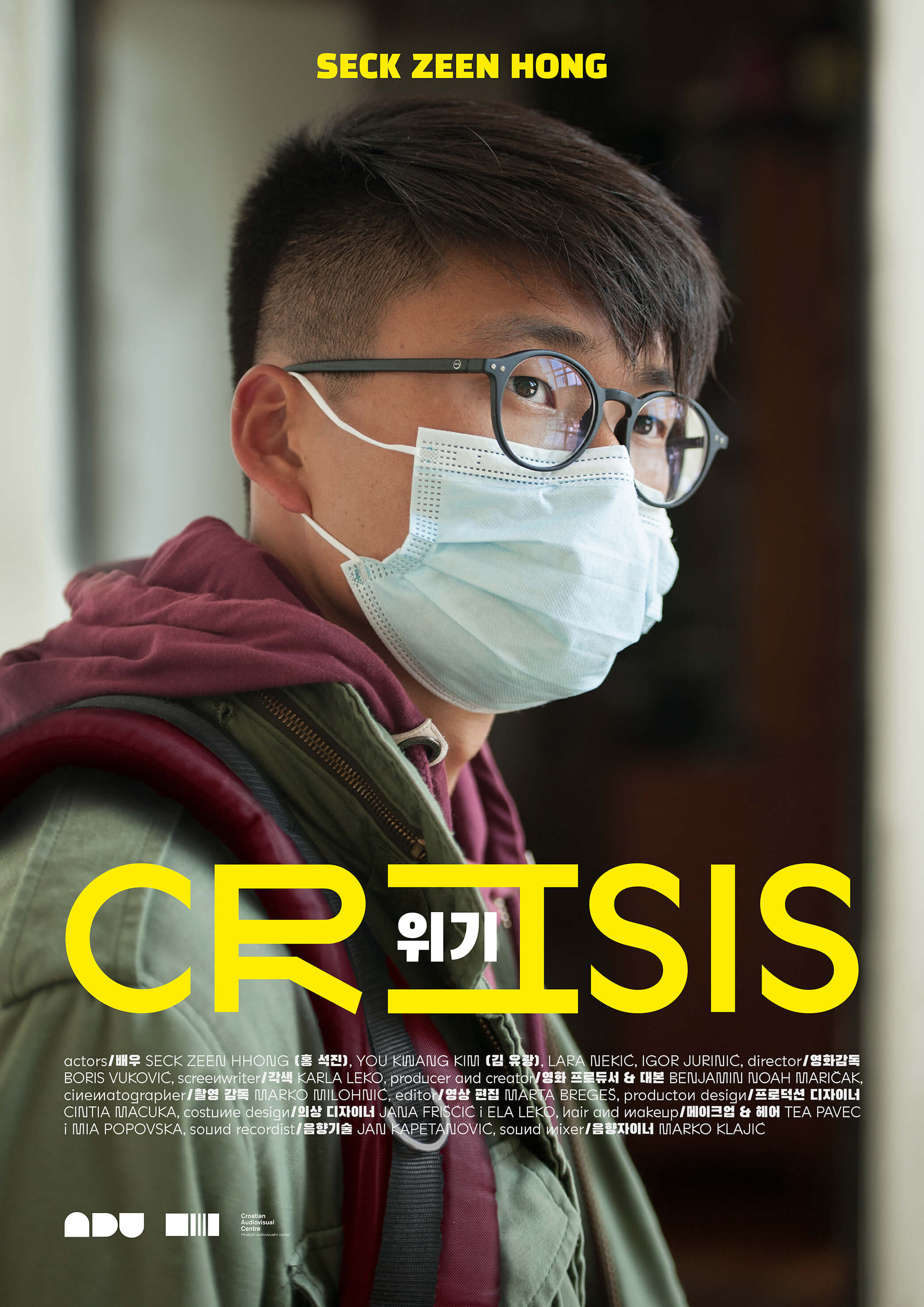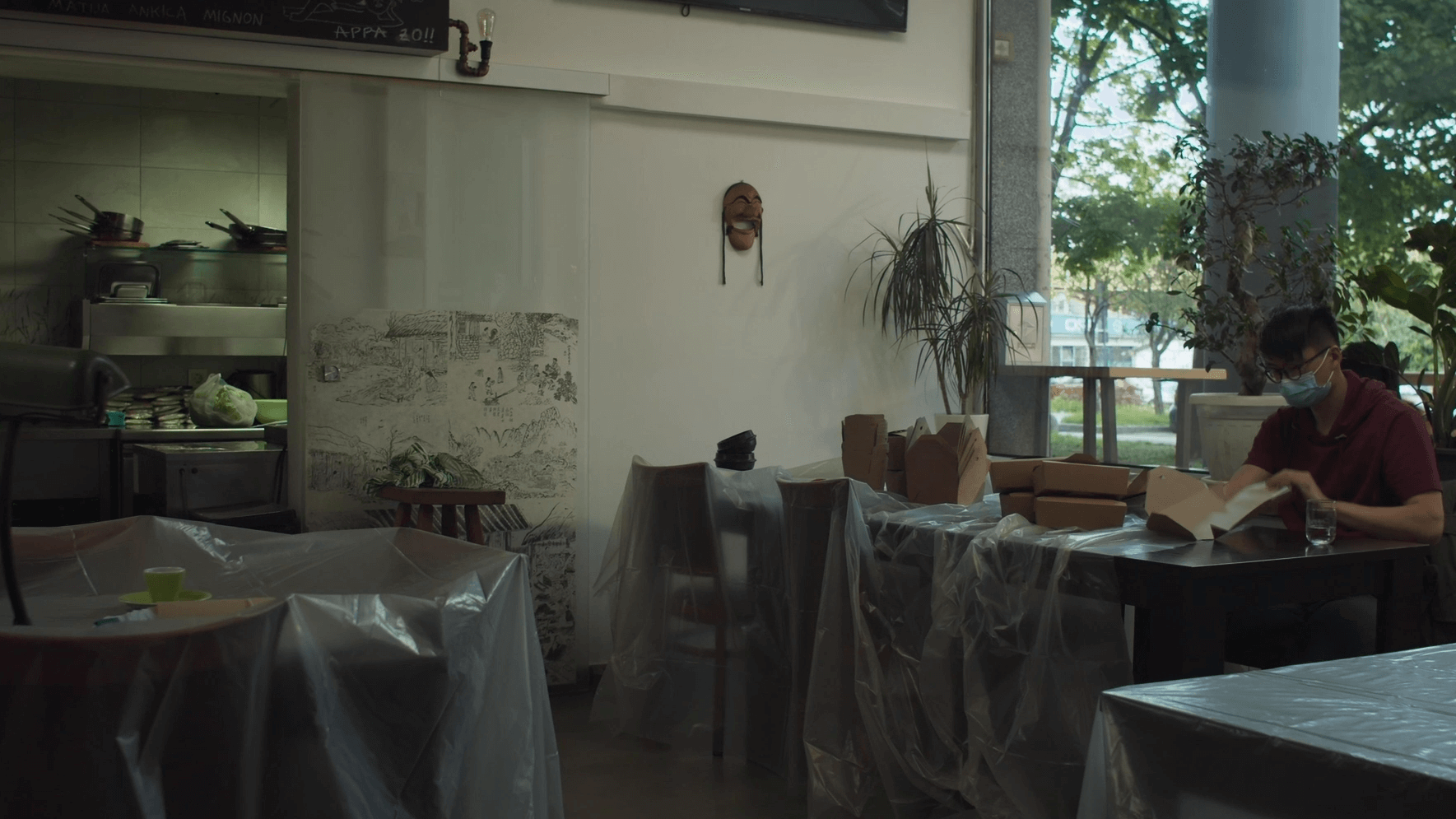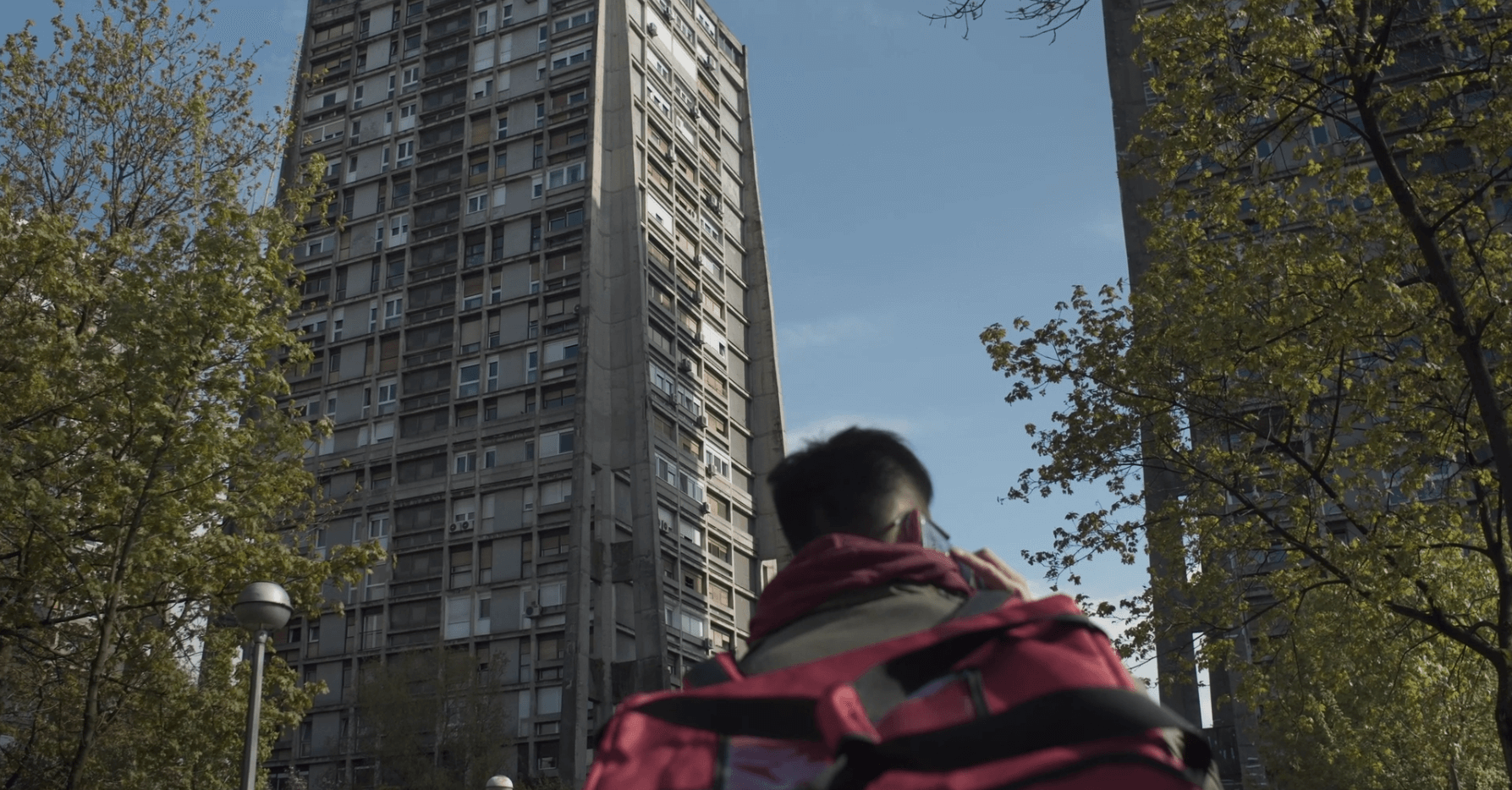Prime Minister Says Euro Area Membership Is a Plus in Crises as Serious as Current One
ZAGREB, 6 May (2022) - Prime Minister Andrej Plenković said on Friday that euro introduction would be positive for Croatia and would enable it to weather challenges better and more easily.
Opening a government session, the PM said that the National Council for euro introduction held a session on Wednesday, stressing that he expected the parliament to adopt the relevant law.
"I believe that membership in the euro area is a benefit in a crisis as serious like the current one, and that it will help us weather the future challenges better and more easily," he said.
He said the government would also formulate changes to the Government Act, announced at the start of the second term.
"We will propose, as one of the measures to step up the fight against corruption, stripping of immunity any government member for crimes of corruption that are prosecuted ex officio," he said.
He added that the government would also formulate a code of conduct for government officials.
For more, check out our politics section.
First Korean-Croatian Film Selected for Two Film Festivals
December 1, 2021 - With Seck Zeen Hong in the leading role, "Crisis" is the first Korean-Croatian film and first Croatian film starring an Asian actor in the main role. Shot in Zagreb during the pandemic, the coming of age drama about a young Korean man seeking to adapt to a new society has already been selected at two film festivals.
In a year where Croatian cinema has not gone unnoticed at international festivals, a short fiction film arrives to join the celebrations and mark a couple of historical milestones along the way. Crisis (Kriza in Croatian, 위기 in Korean), was created and produced by Benjamin Noah Maričak, directed by Boris Vuković, and written by Karla Leko; as part of their graduate work at the University of Zagreb - Academy of Dramatic Art, and it is the first Croatian-Korean film and the first Croatian film starring an Asian actor in the main role. The film was shot in the city of Zagreb during the current pandemic, and it was completed on June 23 of this year.

Official English Poster for Crisis
With a runtime of 14 minutes and 58 seconds, and featuring both Croatian and Korean languages, Crisis follows the day in the life of 20 something-year-old Ji-Hu (Zeen Hong) who is working for his father's Korean restaurant in the heart of Zagreb, as the delivery boy, during the beginning stages of the worldwide lockdown caused by the COVID-19 global pandemic. Throughout his delivery runs across Zagreb, he will not only have to deal with the constant pressure from his father and an odd variety of customers but also trying to adjust in a world where he still hasn’t found his place yet.

Seck Zeen Hong stars as Ji-Hu, a young Korean in his twenties, trying to adjust in the Croatian capital of Zagreb and dealing with pressure from his father, played by You Kwang Kim. Seck Zeen Hong becomes the first Asian actor to play a leading role in a Croatian film.
Everything seems to indicate that the coming of age family drama filmed in the Croatian capital has been well received, since to date the short film has been selected in the official program of two film festivals, confirms the producer and creator of Crisis, Benjamin Noah Maričak. The Asian premiere of the first Korean-Croatian film will be at the Dhaka International Film Festival (DIFF), the largest film festival in Bangladesh. The short film, which features photography by Marko Milohnić and editing by Marta Bregeš, will be part of the festival's official program in the Short & Independent Film Section. The DIFF will be held from January 15th to 22nd, 2022.
In addition, for the local public, Crisis was also accepted in the official program of the CIiklop Film Festival, which will take place in Benkovac, near the city of Zadar. The dates of the Ciklop Film Festival will be from December 18th to 22nd of this year. The official program with the full list of selected films will be published very soon.

Crisis is the first Korean-Croatian film, and it was shot entirely in Zagreb. In this still from the film, you can see the famous brutalist residential buildings known as Rakete, built in 1968.
Here are the names of the cast and team behind the making of the first Korean-Croatian film, Crisis:
Cast
- Ji-Hu: Seck Zeen Hong (홍 석진)
- Father: You Kwang Kim (김 유광)
- Party Girl: Lara Nekić
- Slaven: Igor Jurinić
- Girls at Party: Lucia Luque Akrap, Laura Anić-Kaliger, Laura Bošnjak, and Dora Dimić Rakar
- Man in Tracksuit: Fabijan Pavao Medvešek
- Woman in Apartment: Alemka Sappe
- Teenager 1: Tara Dorotić
- Teenager 2: Klara Fiolić
- Man in Tram: Željimir Sappe
- Postman: Anđelko Katanec
- Bike Thief: Noa Nikolić
Crew
- Director: Boris Vuković
- Screenwriter: Karla Leko
- Producer and Creator: Benjamin Noah Maričak
- Cinematographer: Marko Milohnić
- Editor: Marta Bregeš
- Production Designer: Cinita Macuka
- Costume Designers: Jana Friščić and Ela Leko
- 1st AD: Filip Dizdar
- Hair and Make-up: Tea Pavec and Mia Popovska
- 1st AC: Urh Pirc
- 2nd AC / Best Boy: Tin Ostrošić, and Rene Recek
- Gaffer: Domen Martinčič
- Sound Recordist: Jan Kapetanović
- Boom Operators: Juraj Franolić, and Stjepan Hren
- Script Supervisors: Rudolf Ravbar, and Noa Nikolić
- Sound Mixer: Marko Klajić
- Color Grading: Marko Milohnić
- VFX: Marino Vuletić
- Assistant Editor: Stjepan Hren
- Title Designer: Tamara Milošević
- Production Assistants: Noa Nikolić, and Vedran Bošnjak
Thus begins the festival circuit for a project carried out by young filmmakers and artists, which explores existentialist and very human themes in a very complicated period of our history. We wish them the best and much success!
For everything you need to know about filming in Croatia, in your language, be sure to check Total Croatia's page.
To read more about lifestyle in Croatia, follow TCN's dedicated page.
Despite Crisis, 2021 Saw Fewest Dismissals So Far; Nine in Ten Jobs Insecure
ZAGREB, 27 Aug 2021 - Only one in ten people who have found a job this year have been given permanent work contracts while 90% have found short or fixed-term jobs, Večernji List daily said on Friday, noting that despite the crisis, 2021 saw the fewest dismissals so far.
With the present share of insecure and short-term work Croatia has been holding the European record for years. In the first seven months of 2021 permanent work contracts were signed by slightly less than 9,500 previously employed persons while 83,000 signed fixed-term contracts, the daily says.
Labour market fluctuations are common but mass-scale hiring based on fixed-term employment contracts, followed by dismissals, has been a constant in Croatia for the past 20 years or so.
In 2019 and 2020 around 120,000 workers were hired on a fixed-term basis annually, and some of them probably signed such contracts with the same employer more than one time. Around 100,000 annually re-registered with the employment service, where they waited for another opportunity.
The seasonal character of Croatia's economy is determined by employment in tourism and the related services but fixed-term employment is present also in all other sectors. The prevalence of short-term employment has only been partially alleviated by high government incentives to businesses that sign fixed-term employment contracts with persons under 30.
Since 2015 the state has offered five-year exemption from the payment of wage contributions to businesses that give young people permanent work contracts. These incentives are currently paid for around 150,000 young people, of whom only about 20,000 were given permanent work contracts right away.
Even though this is a strong financial intervention, it has lowered the previous share of fixed-term contracts in the total number of new contracts from 95 to 90%, which bears evidence of the complexity of the problem of short-term hiring.
The number of workers who were declared redundant in the first seven months of 2021 is similar to the same period of 2019 but it is much lower than in 2020. Apart from workers who were declared redundant, another 900 workers were fired because their employers ceased operating, which is a significantly lower number than in the past two years, the daily says.
For more on business, CLICK HERE.
Prime Minister Andrej Plenkovic Calls for Reform of UN
ZAGREB, Sept 25, 2020 - The crises that have impacted the world in 2020 show that commitment to multilateralism is more relevant than ever, Croatia's Prime Minister Andrej Plenkovic said in an address at the 75th session of the United Nations General Assembly, calling for reform of UN.
The crises of 2020, such as the coronavirus pandemic and the consequent economic downturn, "clearly showed that our collective commitment to multilateralism is more relevant than ever," Plenkovic said via video link.
The current crises must not lead to isolationism in the international community but motivate readiness for cooperation in the spirit of solidarity and mutual support, and no other organization is better placed than the United Nations for global delivery of the goals of international cooperation, he said.
That is why "we need a United Nations fit for the 21st century," Plenkovic said, calling for a reform of UN, including its founding document, the UN Charter, as well as of the Security Council, the most powerful body in the UN in which relations reflect the situation at the end of World War II.
"Our organization has to maintain its core values and principles on which it has been founded but it must also reflect the realities and needs of our times," he added.
Critics often call out the UN for allegedly irrational spending, slowness to act, failure to implement its decisions, and bias in adopting them.
The organization's budget last year lacked 768 million of a total of 2.85 billion US dollars because 51 countries did not meet their financial obligations, including Brazil and the USA, Reuters has reported.
Experts underline that the financial problems are a symptom of a broader crisis of confidence in that institution.
Equality of Bosnia and Herzegovina Croats
Apart from going down in history as a year of crises, 2020 is also a year of anniversaries - the 75th anniversary of the UN and the 25th anniversary of the Fourth World Conference on Women and the Dayton-Paris Peace Agreement, which put an end to the "bloodiest war in Europe since the Second World War," said the Croatian PM.
Meanwhile, this part of Europe "has profoundly changed for the better but some problems still prevail and merit our full attention".
Croatia believes that the anniversary of the Dayton peace agreement should be used to reflect on its achievements as well as the contemporary situation in Bosnia and Herzegovina, said Plenkovic, calling for full equality for Croats as a constituent people in Bosnia and Herzegovina as well as for the adoption of appropriate election law to prevent electoral engineering.
Plenkovic recalled the Zagreb Summit of 20 years ago and the second edition of that event, held this year online during Croatia's EU presidency, as well as the country's unequivocal support for the European perspective of Western Balkan countries.
Looking back, much has been achieved, much has changed for the better. Looking ahead, sincere reconciliation is essential to regional stability. It can be built only on truth and grounded in facts, in conjunction with finding all the remaining missing persons and rendering justice for all victims, he said.
Plenkovic also stressed in his address that he was proud that for the first time ever Croatia has a candidate for a judge at the International Court of Justice - an international law professor and vice-dean for international cooperation of the Zagreb University Faculty of Law, Maja Sersic.
"Besides her professional qualities, we believe that her election would also be important for achieving a better gender balance and fairer participation of states within the Court's composition."
Plenkovic also recalled that Croatia was dealing with the consequences of a disastrous earthquake that hit Zagreb in March and thanked world leaders for sending messages of support and offer assistance.
Vaccine for all and protection of the planet
Plenkovic welcomed the UN's resolution on a "Comprehensive and Coordinated Response to the COVID-19 Pandemic" and said that "it clearly demonstrates the need for a global joint approach in addressing the impact and consequences of the pandemic."
"The vaccine must be available to as many as possible and we should spare no effort to make it so," he said.
He also spoke about "the perils of global climate change, which will be the challenge of this century."
He said that world leaders must not ignore the fact that "the past five years hold the highest record for global ocean temperatures", noting that "the oceans play a central role in regulating the Earth's climate."
"Ocean plastic pollution is also unfolding at an alarming rate," he added.
"If we do not act now, the damage (to our planet) will become irreparable," he said.
"Let us, therefore, unite as nations and assume our responsibility to create a healthier, equal, and more sustainable world for the generations to come," Plenkovic said.
For the latest travel info, bookmark our main travel info article, which is updated daily.
Read the Croatian Travel Update in your language - now available in 24 languages
Join the Total Croatia Travel INFO Viber community.
Exports Seen as Way Out of Crisis for Croatia - Conference
ZAGREB, July 21, 2020 - Croatia's economic recovery will depend on the moves by the new government, and the way out of the crisis should also be sought in increasing exports, participants in the Zagreb Invest&Export 2020 conference concluded on Tuesday.
"A country's success does not depend on someone else's assistance but on the efficiency of its government," economist Ljubo Jurcic said at the conference.
He said that boosting exports should be "a lodestar" for every small country, adding that the share of exports in Croatia's GDP is lower than in the case of its peers, and in this context, he called for raising the portion of exports in GDP from the current under-30% level to above 60%.
Jurcic said that in the current globalisation, the focus should be placed on exporting specific products that are part of more complex products such as cars, machinery, and airplanes.
"We have the infrastructure, the know-how and human resources necessary for that," he said.
A former Croatian member of the European Parliament, Marijana Petir, said that the Croatian agricultural sector had a lot of things to offer on the local and European markets, however, agricultural production was still not competitive.
Therefore, we need the funds from the EU to invest in innovations and technology which will enable us to make more products with added value and everything else that consumers demand, and those are organic, fresh and high-quality products, she added.
In this context, she said that some of the €22 billion that will be made available to Croatia from the post-pandemic recovery fund would be disbursed for rural development and aid to farmers.
Mirko Habijanec of the Croatian Employers' Association spoke about the importance of the construction sector for job creation and investment cycles.
PM: Government Has Shown "The Strength of the State" During the Crisis
ZAGREB, June 12, 2020 - Prime Minister Andrej Plenkovic on Friday praised his government for all it had done to contain the spread of the coronavirus pandemic, stressing that it had stood by the workers and employers and shown "the strength of the state" during the crisis.
"In this corona crisis you could see how our government managed to quickly and effectively prevent this epidemic from spreading in Croatia while at the same time standing, like no government before it, by the workers, employers and all those who would probably have ended up on the dole had it not been for our measures, and the employers would hardly have overcome the crisis," the prime minister said at a gathering of members of the Vukovar branch of his Croatian Democratic Union (HDZ) party.
He said that the government had shown "the strength of the state" during the crisis. "We showed how to protect and secure public health and how to preserve jobs," he said, adding that all this was possible because over the past four years the government had been working on promoting healthy economic growth, which has been recognised outside Croatia as well.
"Our investment credit rating has been maintained. Yesterday's €2 billion bond issue, when investors were interested in nearly €9 billion at much more favour interest rates and when we managed to save HRK 360 million annually compared to the same such instrument from 2010, means that there is trust in this government," Plenkovic said.


